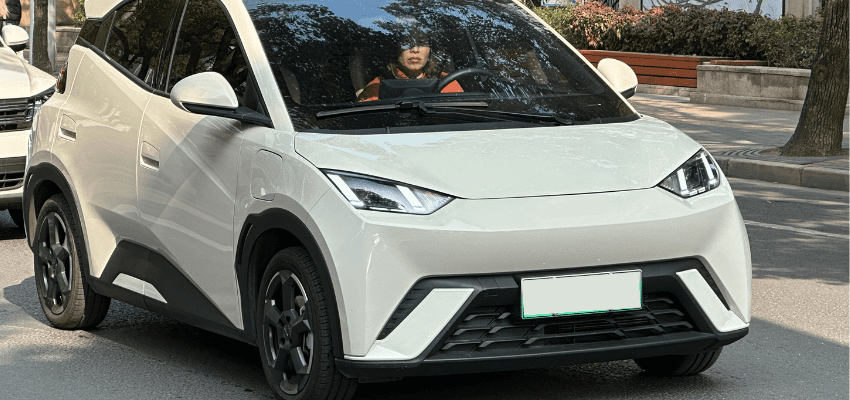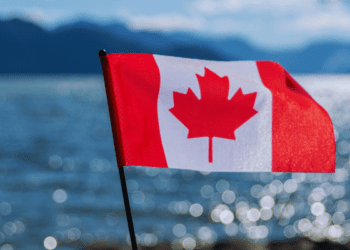(This article was originally submitted as a letter to the Department of Finance’s Consultations on potential policy responses to unfair Chinese trade practices in electric vehicles.)
By Heather Exner-Pirot, August 7, 2024
China is now, beyond a doubt, engaged in dumping and subsidizing a range of clean technologies to manipulate global markets. The remaining question is: How should Canada respond?
The Finance Minister’s consultations on China’s unfair trade practices in electric vehicles is welcome, if belated. Canada should closely follow the United States’ lead on this matter, and evaluate the extent to which other Chinese products, from lithium-ion batteries to battery components, should also be sanctioned.
The New Trio
A key plank of China’s economic growth strategy is manufacturing and exporting the “new trio”: solar photovoltaics, lithium-ion batteries, and electric vehicles. These are high value-add, export-oriented products that China is hoping can compensate for domestic economic weakness driven by a property market crisis, poor demographics, and insufficient consumer demand.
To solidify its role in green technology manufacturing, the Chinese government has provided enormous industrial subsidies to its firms; far higher than those of western nations. According to analysis by Germany’s Kiel Institute, the industrial subsidies in China are at least three to four times – or even up to nine times – higher than in the major EU and OECD countries.
Washington-based think tank CSIS conservatively estimates industrial subsidies in China were at least 1.73 percent of GDP in 2019. This is equivalent to more than USD $248 billion at nominal exchange rates and USD $407 billion at purchasing power parity exchange rates – higher than China’s defense spending in the same year.
On top of state subsidies, Chinese green technology manufacturing companies also benefit from preferential access to critical mineral supply chains (many aspects of which China dominates and manipulates the global market), weak labour and environmental standards, and economic espionage (including stealing technology from western firms and using Chinese-made products to gather intelligence from their western consumers). This green tech espionage includes Chinese-made electric vehicles which are widely suspected of collecting users’ data and sending it back to China in ways that violate their privacy and security.
It is clear that China’s green manufacturing subsidies are not merely levers to promote their domestic economy at the expense of their competitors, but part of a larger strategic plan to control parts of the global energy and transportation system.
European and American Response
In response to these blatantly egregious practices, both the European Commission and United States have recently announced tariffs on Chinese-made electric vehicles.
The European Commission announced their tariffs on July 4, 2024, following a nine-month anti-subsidy investigation. Individual duties were applied to three prominent Chinese producers: BYD (17.4%); Geely (19.9%); and SAIC (37.6%).
Other Battery Electric Vehicle (BEV) producers in China, which cooperated in the investigation but were not sampled, are subject to a 20.8% duty. Non-cooperating companies are subject to a 37.6% duty.
The United States policy was announced on May 14, 2024, and is both more comprehensive and more punitive than the European Commission’s. It covers not only electric vehicles, which face an increase in tariffs from the previous 25% to 100% as of August 1, 2024, but lithium-ion batteries (from a 7.5% to 25% tariff) and battery parts (from a 7.5% to 25% tariff). Natural graphite and permanent magnets will also face a tariff of 25%, starting in 2026.
Canada’s Response
Minister Freeland’s determination that Canada “does not become a dumping ground” for subsidised Chinese-made EVs, and commitment that Canada “will not stand” for China’s unfair trade practices, is very welcome.
To that end, Canada’s tariff policy on Chinese-made EVs should closely match the United States’, rather than Europe’s.
Canada’s auto industry is highly integrated with the United States, and our EV and battery supply chain, to the extent consumers will demand them, will be no different. Official Washington is seized with the threat China poses to the liberal world order and their position atop the global hierarchy. The United States will have little tolerance for Canada as a back door for Chinese-made EVs and battery parts. The growth and penetration of Chinese-made EV imports in Canada from 2022 to 2023 – an increase of 2500% year over year, now representing 25% of our imported EVs – shows that this is not a theoretical problem, but an existing one.
A soft touch on Chinese EV tariffs would likely create worse economic consequences for Canada in the North American context – in terms of impact to our domestic auto manufacturing industry, extensive battery supply chain investments, and CUSMA renegotiations – than it would confront from China, though these may indeed be painful.
For all these reasons, Canada should extend tariffs to lithium-ion batteries and battery parts as well, as the United States has done. This is fully with precedent. Canada has already applied extensive duties to Chinese-made photovoltaics and wind towers, and has put heavy investment restrictions on Chinese ownership of critical minerals production and miners in Canada.
Long-term Thinking
Free trade is a cornerstone of the liberal world order. It has improved the material well-being of billions of people. Restrictions on trade should not be taken lightly.
But Chinese dumping, subsidies, and market manipulation mean that the global market is not free for many critical minerals, EVs, solar panels, wind towers, lithium-ion batteries, and other green technology components. Canada cannot ignore that fact for a perceived short-term gain from cheaper products.
Just as Europe learned that relying on Russia for cheap natural gas was expensive, relying on China for our energy transition will not move Canada to a lower carbon energy system easier, faster or cheaper. It will impose different costs that Canadians will pay in a multitude of ways.
This may disappoint those that prioritize renewables and EV deployment over national security and domestic economic growth. The good news is that Canada has good options that satisfy climate goals as well. Canada is rich in oil, gas, uranium, and water. We are independent in fossil fuels, nuclear and hydroelectric energy. Let us build on those strengths and invest in green technologies that leverage them, including carbon capture, utilisation and storage (CCUS), third and fourth generation nuclear reactors, pumped storage hydropower, and hydrogen.
Canada needs to focus on decarbonization efforts in areas in which we can both be energy independent and protect Canadian consumers and workers from unfair trade practices. To do this, Canada should apply appropriately punitive anti-dumping subsides on Chinese-made EVs, lithium-ion batteries, and battery parts.
Heather Exner-Pirot is director of energy, natural resources and environment at the Macdonald-Laurier Institute.






